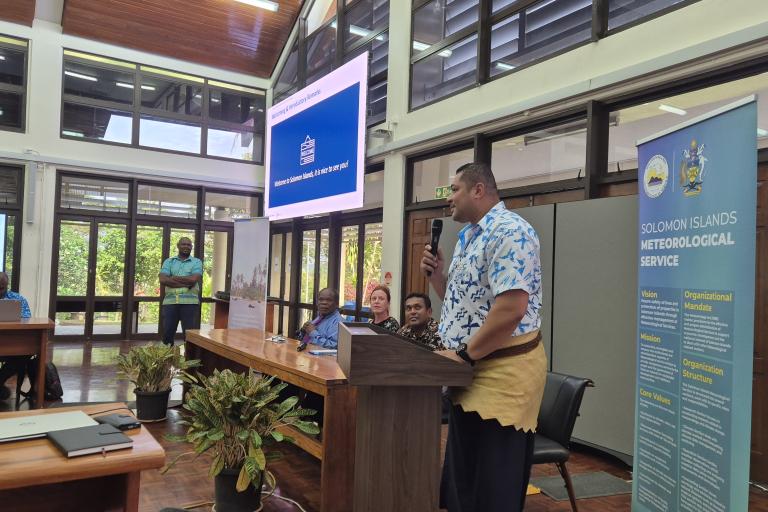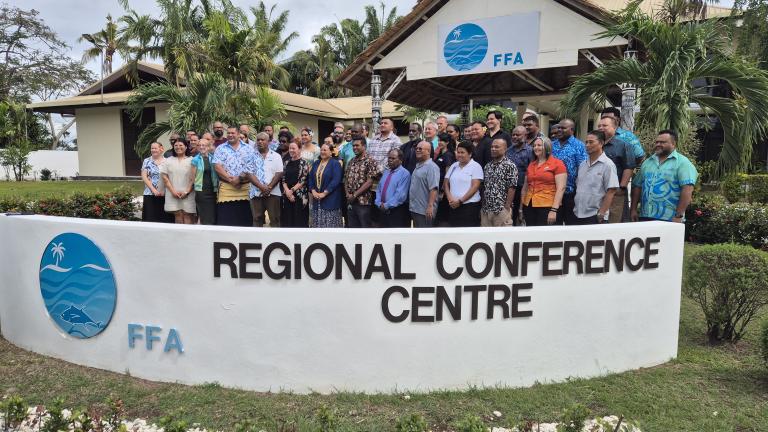Inclusive Early Warning and Action in the Pacific project launched

This four-year, US$ 5.5 million project, funded by the Climate Risk and Early Warning Systems (CREWS) Initiative, aims to strengthen multi-hazard early warning systems (MHEWSs) across 14 Pacific nations. It will deliver people-centered, gender-responsive services and improved forecasting products to ensure timely and inclusive warnings, especially for the most vulnerable communities.
“SIEWAP reflects the Pacific’s commitment to partnership. With support from CREWS and other development partners, we will deliver stronger, more effective early warning services to our communities,” said Laitia Fifita, President of the World Meteorological Organization Regional Association V (South-West Pacific) and Tonga Meteorology Director.
The project was launched on 22 September at a workshop opened by the Deputy Permanent Secretary of the Solomon Islands Ministry of Environment, Climate Change, Disaster Management and Meteorology, Mr. Karl Kuper.
Representing community voices, Casper Fa’asala, CEO of the Disabled People’s Association of Solomon Islands, stressed: “For early warnings to truly save lives, they must reach everyone including people with disabilities, women, and communities at the last mile. CREWS SIEWAP Project is an opportunity to ensure no one is left behind.”
Participants from the National Meteorological and Hydrological Services, National Disaster Management Offices, and implementing partners endorsed the multi-year work plan and budget, validated the monitoring and evaluation framework and Theory of Change, ensuring alignment with global initiatives such as Early Warnings for All and the Weather Ready Pacific Programme.

Ms. Gabrielle Emery, Head of Office, UN Office for Disaster Risk Reduction, noted the regional significance: “This project builds directly on the Early Warnings for All initiative and aligns with broader resilience efforts across the Pacific. By working together, we can strengthen systems that protect lives and livelihoods.”
The project is funded by CREWS, with WMO and UNDRR as implementing partners. The inception workshop was co-funded by IFRC, SPREP, through Weather Ready Pacific and Varysian. WMO and UNDRR will work closely with Pacific National Meteorological and Hydrological Services and National Disaster Management Offices to deliver on the project’s vision of scaling up resilience and ensuring timely, inclusive, and accessible early warnings across the Pacific.
- WMO Member:
- Tonga
- Region:
- Region V: South-West Pacific

